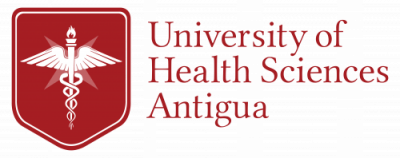STUDY HABITS OF SUCCESSFUL MEDICAL STUDENTS
Medical student success has sometimes been attributed to simply having a high IQ. In other words, nature over nurture. However, research over the past two decades have identified several habits that highly successful medical students have in common, regardless of IQ level. So, why not put these habits to work for you?
WRITE DOWN YOUR STUDY PLAN/CALENDAR
Research shows that when you have a written study/life schedule, you are more likely to stick with that schedule. There really is no secret to medical school success, other than this: work hard, do the work, put in the time, put in the effort, and you will succeed. Having a study schedule helps you do this. Make sure you post your study schedule where you can see it. And of course, stick to that schedule!
ORGANIZE WITH COLORS, COLORS, AND MORE COLORS
Perhaps you used a color-coding system as an undergraduate. Maybe you didn’t. Regardless, no is the time to start using a color-coding system. For example, you may want to assign a specific color to a specific class binder. Or maybe when you read, you want to highlight specific topics in specific colors. Here’s a great video on how to use color to code your notes.
A SPECIFIC STUDY SPOT
You need a quiet place to study. If you are studying in a room full of other people, like your living room or a café, then you will not get the most out of your study session. Make sure that you have a specific spot where you do most of your studying. It should be comfortable (not too comfortable, this isn’t nap time), well-lit, and free from distractions. You may want to mix it up from time-to-time, just for a chance of scenery. But make sure wherever you switch to, it still meets the same requirements.
GET TO KNOW YOUR LEARNING STYLE
Your learning style can have an impact on how you take notes, organize your study materials, what adjunct materials you study, and so forth. It can also have an impact on how you interact with professors and peers. While some researchers suggest that there are as many as seven learning styles, most focus on the four main ones that come under the acronym VARK: visual, auditory, reading/writing, kinesthetic. Take this learning style test to determine your learning style.
BETTER NOTES, BETTER GRADES
Note taking is critical in medical school, as well as internship/residency. But writing down everything a lecturer says is ineffective. As such, learning how to take better notes is key to success. There are five common note-taking strategies, including: Cornell, outlining, mapping, charting, and sentence method. Learn more about these styles, experiment with them, and decide which is best for you. You will also see that different note taking styles align with learning styles as well.
DON’T PUT THINGS OFF
You might think you work better under stress, but research shows that those who procrastinate tend to do worse on examinations. Plus, they tend to have higher stress levels, which is bad for their physical and emotional well-being. As such, make sure you are sticking to your schedule. This will give you control over the situation. Medical school is stressful, so having control of your life is key to survival. Plus, when you have control, your anxiety levels go down (less cortisol) and performance goes up.
CARE FOR THE BODY AND MIND
You must have both physical as well as mental health in medical school to succeed. We know that large numbers of medical students experience stress, anxiety, weight gain, and even depression and suicide. So, having a schedule that allows you to both get all the studying you need in, but also leaves time for your physical and emotional well-being is key. In your life schedule, included exercise, healthy meals, time with friends/family, sleep (you have to sleep in order to convert short term information to long-term memory). The biopsychosocial model is real, and you need it in medical school just as much as your patients need it in their lives.
LIVE YOUR DREAM: BECOME A DOCTOR!
Join the UHSA family to live your dream of becoming a practicing physician. With three programs to choose from, one will be right for you.
Traditional MD Program – for those who have the premedical requirements, and want to attend the second oldest medical school in the Caribbean, our traditional MD program is right for you.
Combined MD/MPH Program – for those who want to enhance their credentials and earn a masters of public health at the same time, this program is right for you.
Accelerated Premedical Program – for those who do not have the required premedical credits, this program will get you the credits you need to enter our MD program directly.
Contact our Admissions Team today to learn how you can join the UHSA family!

